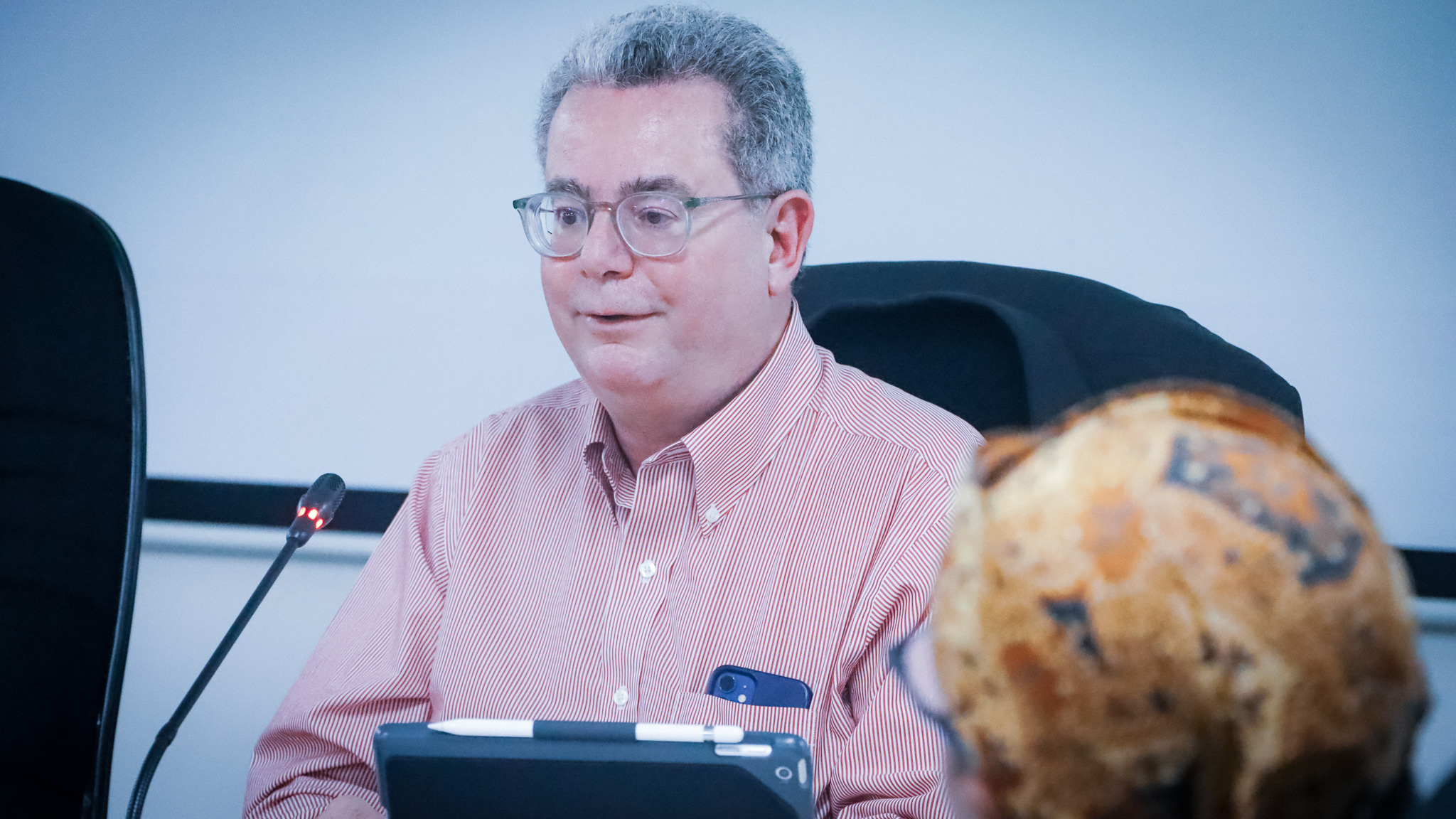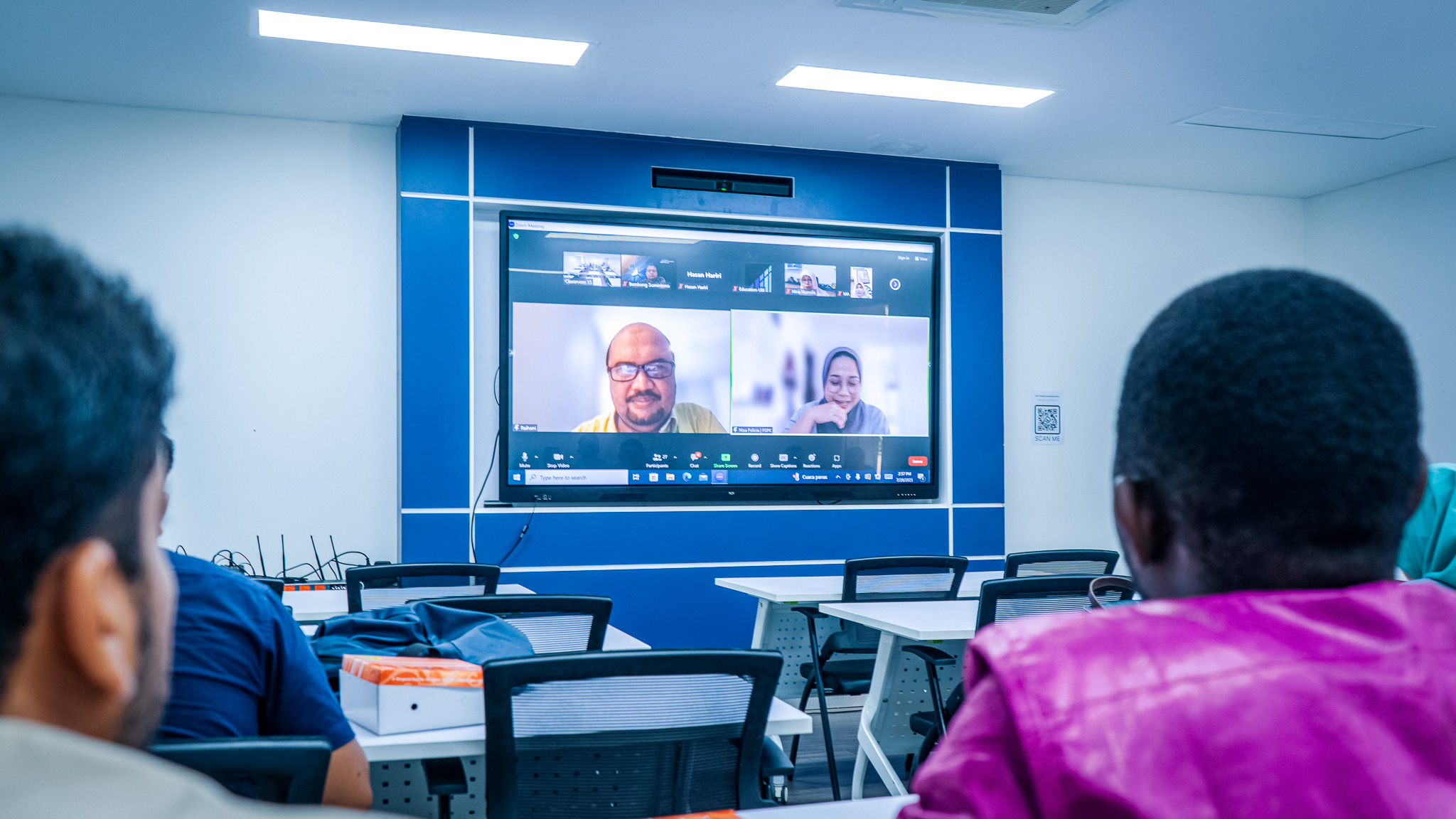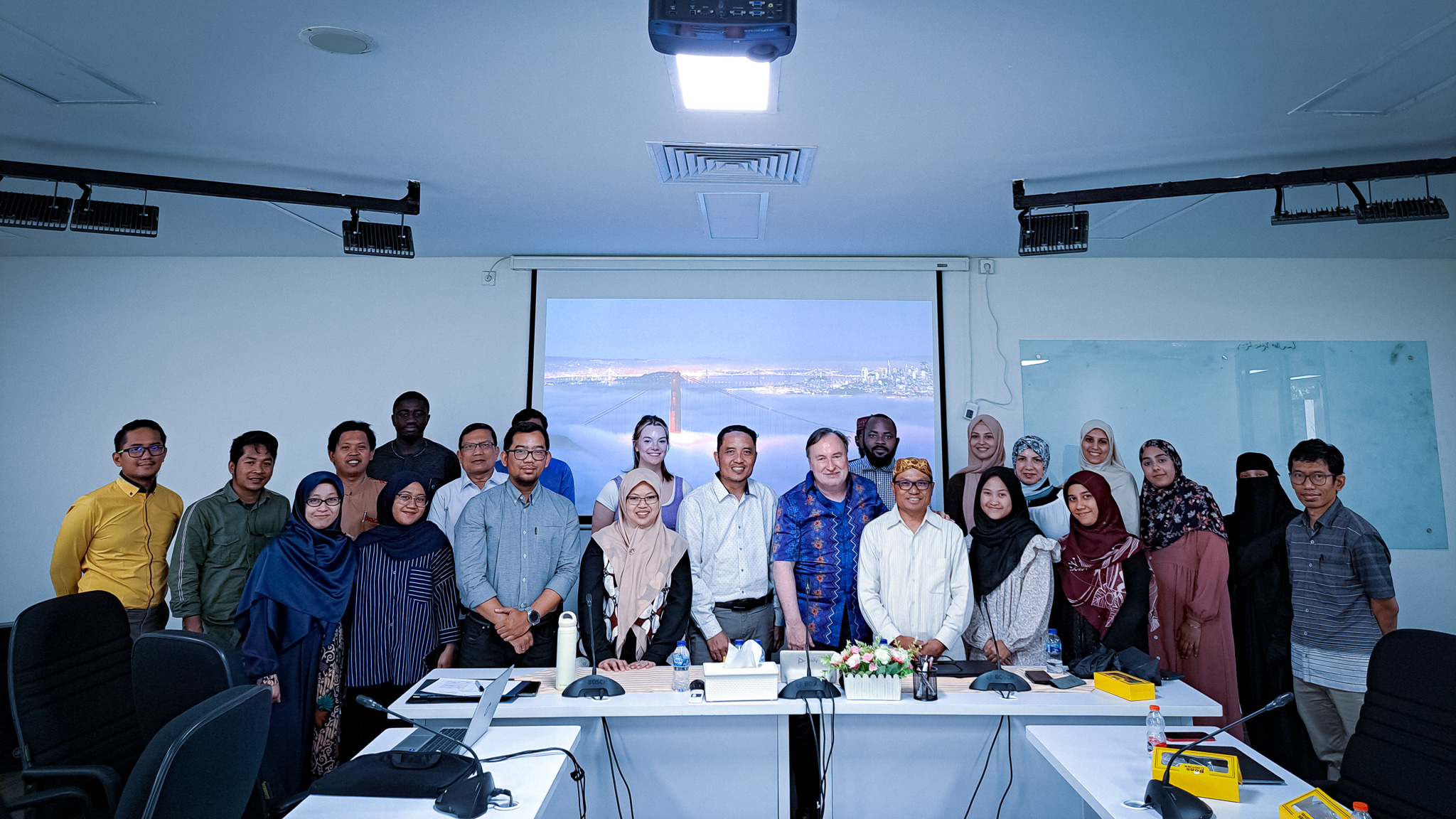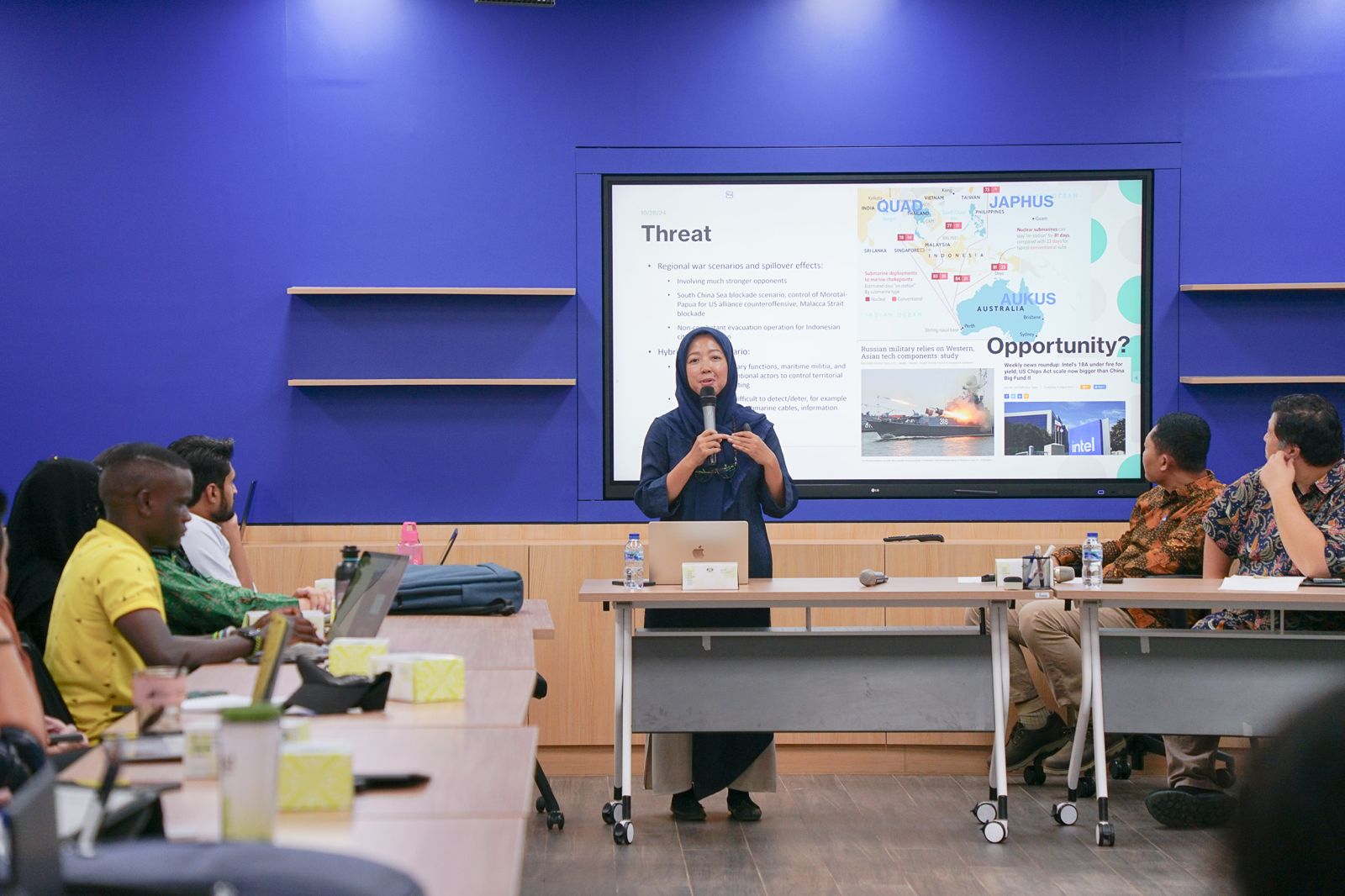The Intersection of Democracy, Constitution, and Multiculturalism: Perspectives from the UIII Brownbag Series
May 15, 2023Contributor: Magello R. Fenis | Editor: Dadi Darmadi

The Brownbag Series event titled "Democracy and Constitutional Politics in Multicultural Society" took place on May 10, 2023 at the Faculty of Social Sciences, Universitas Islam Internasional Indonesia (UIII). The guest speaker for the event was Christopher P. Manfredi, a professor of political science and the acting Principal and Provost and Vice-Principal Academic at McGill University, Montreal, Quebec, Canada.
During his lecture, Prof. Manfredi emphasized the importance of law in regulating and setting boundaries for behavior deemed inappropriate within a community. He explained that laws act as a deterrent against unlawful individual conduct.
Furthermore, Prof. Manfredi made a distinction between procedural and substantive laws. Procedural laws govern the process of enforcing substantive laws and outline the procedures to be followed in legal proceedings. These procedures encompass rules of evidence that determine which evidence can be presented in court, as well as rules of civil and criminal procedure that dictate the conduct of legal cases.
On the other hand, substantive laws define the actual content of the law, including the rights and obligations of individuals and the consequences for violating those rights. Substantive law is focused on the substance of the law, rather than the procedures for its enforcement. Both procedural and substantive laws are essential components of the legal system, working together to ensure justice is served and individual rights are safeguarded.
During the Q&A session following the lecture, attendees raised questions about the role of legal practitioners and how their interpretations can impact the quality of justice. Prof. Manfredi responded by acknowledging the complexity of the justice system and the influence of human fallibility on legal interpretation.
Legal practitioners do not simply provide subjective opinions; their legal interpretations are based on years of expertise and training. According to Prof. Manfredi, even court justices may have different interpretations and understandings of the Constitution, and this does not necessarily imply that any particular interpretation is incorrect. In fact, court rulings can be subject to the appeals process and may be overturned or modified.
Finally, Prof. Manfredi conveyed a message to students aspiring to study law, emphasizing the objective of contributing to society by ensuring equal opportunities for everyone and promoting the equality of all community members.[]
- Gate Design Competition of UIII Campus: Call for Innovative Architects
- Ministry of Religious Affairs Welcomes Prof. Dr. Suyitno as Director General of Islamic Education
- Prof. Kamaruddin Amin Inaugurated as Secretary General of the Ministry of Religious Affairs
- UIII Boosts Youth Entrepreneurship with Business Model Canvas Workshops
- Jusuf Kalla’s Mission: Bridging the Divide Through Education
- Integrating Disaster Monitoring Systems
- Strengthening Climate Resilience: UIII Delegation Visits BNPB for Insights on Disaster Management
- Jusuf Kalla Heads to London: A Global Retreat to Champion Muslim Minorities
- UIII to Host Decolonial Writing Workshop: A Global Collaboration on Academic Reform
- Experts Advice Classical Islam to Focus on Language and Manuscript Studies


